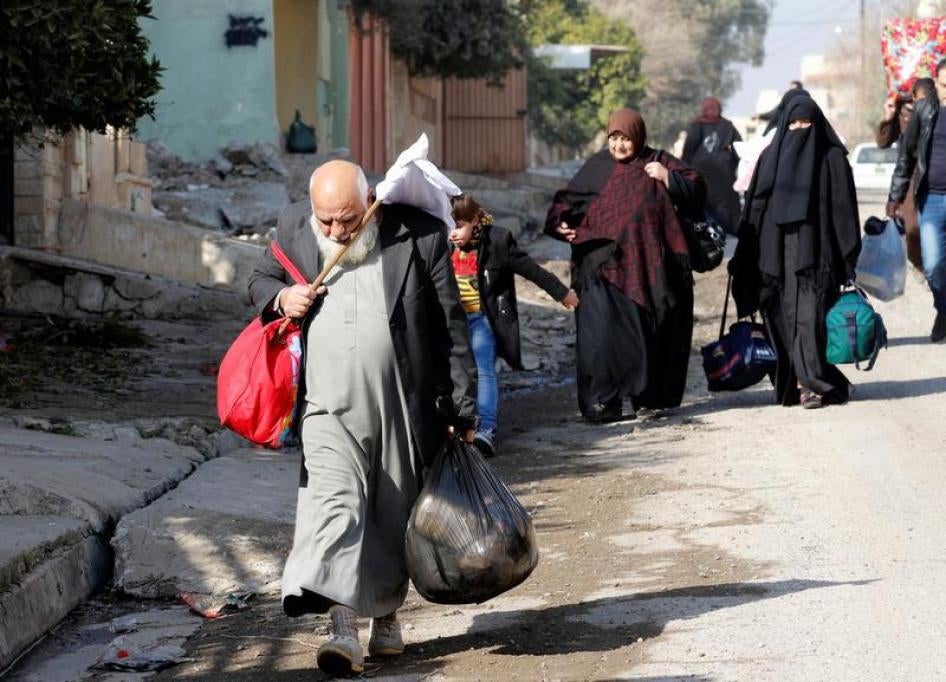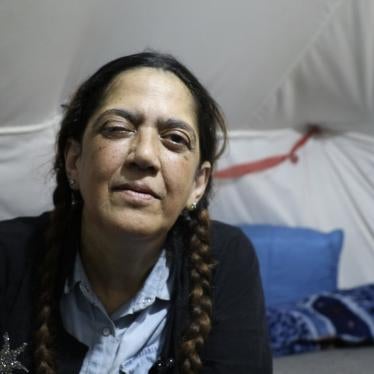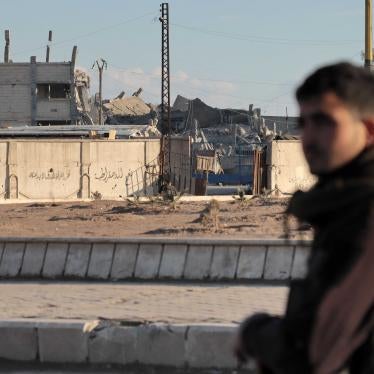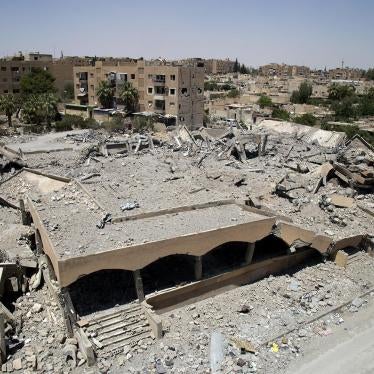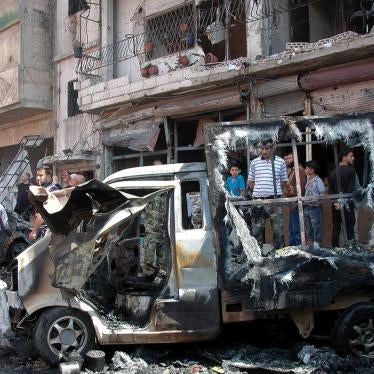As the operation to retake Mosul from the Islamic State (also known as ISIS) continues, people are discussing reconciliation between Iraq’s Shias and its Sunnis, some of whom have been perceived to support ISIS.
Locals and international figures alike realize the challenges ahead. Those around reconciliation have been made even more difficult by recent decisions made by some Iraqi officials that violate basic rights.
In July 2016, the Babylon provincial council passed a decree calling on authorities to demolish the homes of anyone proven to have participated in terrorist activities, deport their families from the province, and to authorize legal procedures against the families proven to have “concealed” their ISIS-affiliated relatives.
In August, the Salah al-Din provincial council passed a similar decree, stating that anyone proven to have been complicit or affiliated with ISIS has no right to return to the province. The decree establishes a committee to seize ISIS-affiliates’ property and suspend their provision cards as well as those of their families. Families that kill or hand over their ISIS-affiliated relatives are exempted.
The problems with these decrees are multifold. Will people be prosecuted? How badly could children or extended family members be punished? At the very least, people could be penalized without ever having committed a crime.
True, I have not yet spoken to families impacted by these decrees, and local officials have not yet implemented them.
But I have interviewed people from Salah al-Din who are displaced and living in camps. They are very concerned as to whether they will be allowed to return home, and what will happen to them if they can’t.
Families from Anbar face similar difficulties, as in July, tribal leaders said that people who “promoted” ISIS are not allowed to return until their charges are reviewed. Individuals who did not renounce relatives who supported ISIS are only allowed to return home “when this situation stabilizes.” No one knows when that will be.
In the disputed territories between central Iraq and the Kurdistan Region of Iraq – in what looks like collective punishment, a war crime – we have seen Kurdistan Regional Government military forces demolish whole villages, displacing villagers who they deem sympathetic to or members of ISIS.
It is a basic international standard that punishment for crimes should only be imposed on those individuals responsible for the crimes, after a fair trial to determine individual guilt. Imposing collective punishments on families, villages, or entire communities is strictly forbidden and can itself be a crime, especially if it results in forced displacement.
Reconciliation requires that communities welcome individuals back and rebuild bridges with other communities. Policies that do otherwise are at odds with rebuilding trust and understanding. One has to wonder why Iraq’s officials are pursuing these measures.

